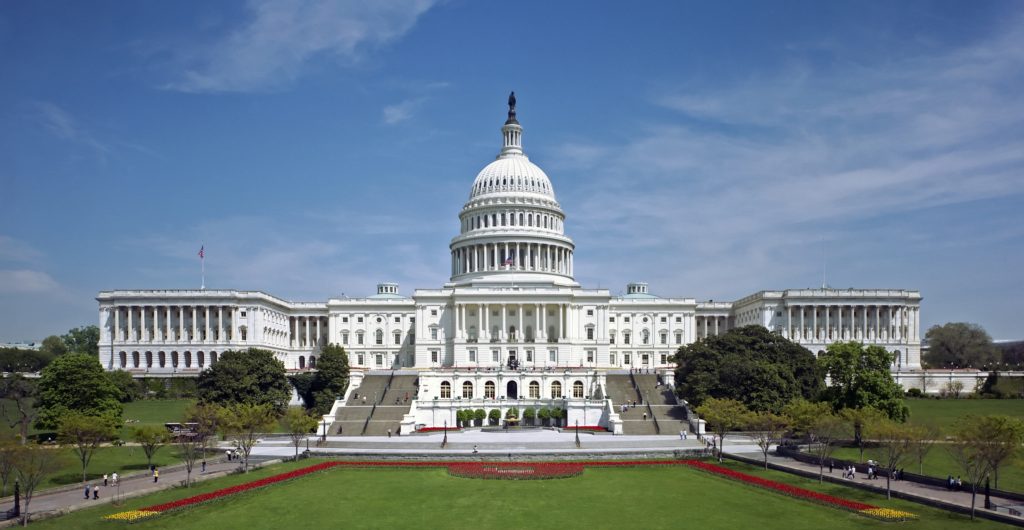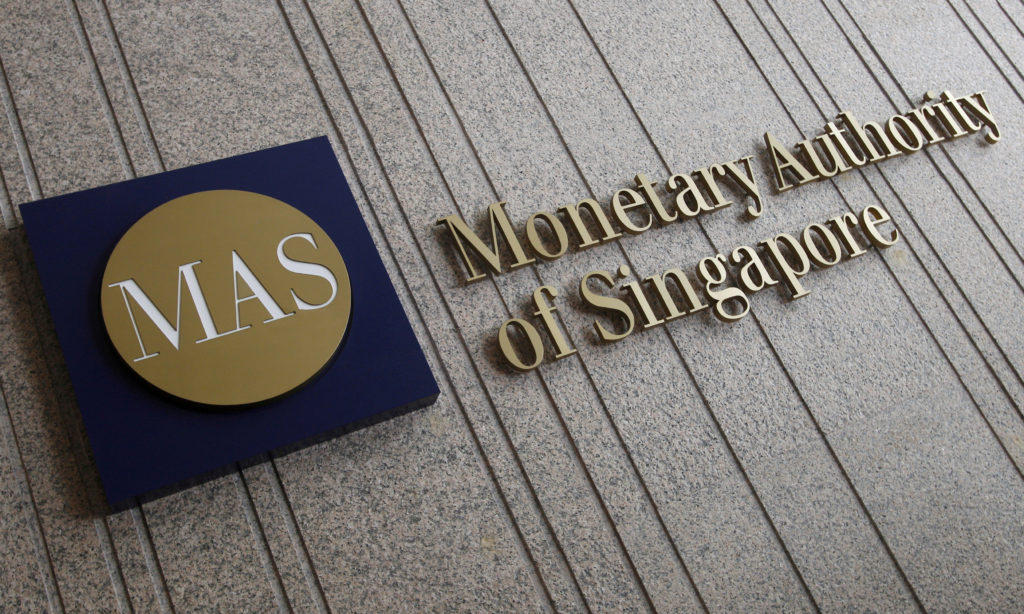District of Columbia Attorney General Karl Racine accused MicroStrategy co-founder and Executive Chairman Michael Saylor of evading $25 million in district taxes in a lawsuit filed Wednesday.
The lawsuit also names MicroStrategy as a defendant. Racine alleges the company conspired to help Saylor evade the taxes. The AG’s office said it’s seeking to recover a total sum of over $100 million in unpaid taxes and penalties.
Shares of MicroStrategy were down more than 6% Wednesday afternoon on the news. Saylor, who oversaw the company’s push into bitcoin, stepped down as CEO earlier this month. Under his leadership, MicroStrategy spent close to $4 billion acquiring bitcoin at an average price of $30,700, and he has said he considers the company’s stock a sort of bitcoin ETF.
Saylor allegedly claimed to reside in Virginia or Florida, which have lower or no personal income tax rates, while actually living in several different homes around D.C., including a penthouse apartment in the Georgetown neighborhood or on his yacht on the Georgetown waterfront or Potomac River when the apartment was undergoing renovations, according to the lawsuit. The suit includes several screenshots of posts that appear to be from Saylor’s Facebook page dating back several years and referencing the view from his “Georgetown balcony” and discussing his “home” while tagging Washington, D.C.
MicroStrategy allegedly “had detailed information confirming that Saylor was in fact a DC resident,” according to a press release, but it chose to withhold that information.
In a statement, MicroStrategy said, “The case is a personal tax matter involving Mr. Saylor. The Company was not responsible for his day-to-day affairs and did not oversee his individual tax responsibilities. Nor did the Company conspire with Mr. Saylor in the discharge of his personal tax responsibilities. The District of Columbia’s claims against the Company are false and we will defend aggressively against this overreach.”
Around 2014, the AG’s office claims in the lawsuit, MicroStrategy’s then-chief financial officer confronted Saylor about his alleged tax evasion being a potential liability for the company. Saylor and MicroStrategy ended up reaching an agreement where Saylor’s salary would be reduced to a nominal $1, the lawsuit claims, in order to reduce the risk authorities would discover the alleged scheme. Still, the AG alleges, Saylor continued to benefit from “fringe benefits” with a “high cash value,” such as use of the company plane.
“A decade ago, I bought an historic house in Miami Beach and moved my home there from Virginia,” Saylor said in a statement. “Although MicroStrategy is based in Virginia, Florida is where I live, vote, and have reported for jury duty, and it is at the center of my personal and family life. I respectfully disagree with the position of the District of Columbia, and look forward to a fair resolution in the courts.”
The suit is the first to be brought under a recently passed law called the False Claims Act, according to Racine’s office. The district law incentivizes whistleblowers to report tax fraud and allows the court to impose penalties up to three times the amount of the evaded taxes, according to the AG’s office.
The district suit follows a separate complaint filed by whistleblowers against Saylor in April 2021, accusing him of failing to pay income taxes from 2014 through 2020. The complaint was filed under seal but made public on Wednesday.
The AG’s office said it independently investigated the whistleblower case and found MicroStrategy had filed inaccurate W-2s with his Florida-based address and had failed to withhold taxes allegedly owed to the district. The new lawsuit alleges Saylor failed to pay income tax he owed to the district starting in 2005.
Follow Crypto Intelligence on Google News to never miss a story
Crypto lender Celsius Network will allow withdrawals from some of its customers, potentially returning $210 million to users who were locked out of their accounts this summer.
Celsius paused customer withdrawals in June, claiming it had been slammed by the massive crypto sell-off. It later attempted to resume withdrawals by raising money through a high-yield token, but eventually filed for bankruptcy in July.
But a new court filing said the lender will reopen withdrawals for customers who have custodial and withhold accounts, CoinDesk reported, noting about 58,300 users deposited over $210 million in those accounts.
That came a day after 64 custodial customers filed a petition against the crypto lender demanding their funds be returned to them, adding that Celsius had the ability to do so, but have avoided that for months.
“The Debtors’ continued refusal to honor withdrawals of all Custody Assets has created tremendous hardship on their users as set forth in hundreds of letters filed on the docket and at hearings,” the petition said, referring to letters sent to the Southern District of New York from Celsius customers. Many of them have expressed anger at being locked out of their accounts, and have pleaded to get their deposits back.
Celsius owed $4.7 billion when it filed for bankruptcy. According to court filings, Celsius said the total value of its assets were only worth around $4.3 billion at the time it declared bankruptcy, around $17 billion less than what it reported in March of this year.
Follow Crypto Intelligence on Google News to never miss a story
In its first foray into the crypto sector, the House Committee on Oversight and Reform is dialing up the pressure on federal agencies and crypto exchanges to protect Americans from fraudsters.
In a series of letters sent Tuesday morning, the committee asked four agencies, including the Department of the Treasury, the Federal Trade Commission, the Commodity Futures Trading Commission, and the Securities and Exchange Commission, as well as five digital asset exchanges — Coinbase, FTX, Binance.US, Kraken, and KuCoin — for information and documents about what they are doing, if anything, to safeguard consumers against scams and combat cryptocurrency-related fraud.
More than $1 billion in crypto has been lost to fraud since the start of 2021, according to research from the FTC.
“As stories of skyrocketing prices and overnight riches have attracted both professional and amateur investors to cryptocurrencies, scammers have cashed in,” wrote Rep. Raja Krishnamoorthi, D.-Ill., Chair of the Subcommittee on Economic and Consumer Policy. “The lack of a central authority to flag suspicious transactions in many situations, the irreversibility of transactions, and the limited understanding many consumers and investors have of the underlying technology make cryptocurrency a preferred transaction method for scammers.”
The letters ask that the federal agencies and crypto exchanges respond by Sept. 12 with information about what they are doing to protect consumers. The committee says that these responses could be used to craft legislative solutions.
In particular, the letters ask that the exchanges produce documents dating back through Jan. 1, 2009, which display efforts to combat crypto scams and fraud, as well as show attempts made to “identify, investigate, and remove or flag potentially fraudulent digital assets or accounts,” as well as highlight discussions around “whether to adopt more stringent policies.”
In one letter, addressed to Sam Bankman-Fried, the CEO and founder of FTX, the committee notes that “while some exchanges review cryptocurrencies before listing them, others allow digital assets to be listed with little or no vetting.”
Blockchain analytics firm Chainalysis found that 37% of crypto scam revenue last year went to “rug pulls,” a type of scheme that involves developers listing a token on an exchange, pumping it up, and then vanishing with the funds.
Binance.US, which also received an inquiry from the committee on Tuesday, has been accused in a class action lawsuit of misleading consumers about the safety of investing in the U.S. dollar-pegged stablecoin known as terraUSD (or UST, for short) and its sister token, luna. At their height, luna and UST had a combined market value of almost $60 billion. Now, they’re essentially worthless.
Concern over the safety of crypto funds parked on centralized platforms has also been gaining traction following the recent collapse of Voyager Digital and Celsius, both popular apps among retail traders because of the double-digit annual percentage yield once offered by the two companies. The subsequent bankruptcies of these two platforms have highlighted the question of who owns cryptocurrency assets when a custodial business goes belly up. In the bankruptcy proceedings of both Voyager and Celsius, customers are considered unsecured creditors, rather than federally-insured bank depositors, meaning there is no guarantee they will get any of their money back.
As for the relationship between investor and crypto exchange, the terms and conditions vary. In a financial filing released in May, Coinbase said its users would be treated as “general unsecured creditors” in the event of bankruptcy.
Krishnamoorthi also noted that the agencies often seem to be acting at cross-purposes and giving inconsistent guidance to private-sector players. “Without clear definitions and guidance, agencies will continue their infighting and will be unable effectively to implement consumer and investor protections related to cryptocurrencies and the exchanges on which they are traded.”
Follow Crypto Intelligence on Google News to never miss a story
Singapore is planning to roll out new regulations that will make it more difficult for retail investors to trade cryptocurrencies at a time when they seem to be “irrationally oblivious” about the risks, its central bank chief said.
Ravi Menon, managing director of the Monetary Authority of Singapore (MAS), said at an event on Monday that despite warnings and measures, surveys show that consumers are increasingly trading in cryptocurrencies globally, not just in Singapore, attracted by the prospect of sharp price increases.
“They seem to be irrationally oblivious about the risks of cryptocurrency trading,” he said.
“Adding frictions” on retail access to cryptocurrencies was an area the MAS was contemplating, he said.
“These may include customer suitability tests and restricting the use of leverage and credit facilities for cryptocurrency trading,” he added at a seminar titled “Yes to digital asset innovation, No to cryptocurrency speculation.”
Singapore’s welcoming approach has helped the financial hub attract digital asset services-related firms from China, India and elsewhere in the last few years, making it a major center in Asia.
But recent defaults of some global cryptocurrency-related firms based in Singapore, many of which are not subject to the financial regulator’s guidelines on consumer protection or market conduct, has triggered worries about tighter regulation.
The MAS will seek public feedback on its proposals by October, Menon said, adding that reviews are ongoing by regulators globally.
In January, the MAS issued guidelines to limit cryptocurrency trading service providers from promoting their services to the public. Read full story
Cryptocurrencies have plunged this year, as U.S. interest rate increases and runaway inflation prompt investors to ditch riskier assets.
“MAS’ facilitative posture on digital asset activities and restrictive stance on cryptocurrency speculation are not contradictory,” Menon said.
U.S. crypto exchange Gemini and Huobi, a crypto exchange initially focused on China, are among those with a major presence in Singapore.
About 180 crypto companies applied for a crypto payments license to the MAS in 2020 under a new regime but Singapore has handed out only about two dozen licenses so far after an elaborate due diligence process that is still going on.
Follow Crypto Intelligence on Google News to never miss a story
As crypto exchange Coinbase faces industry challenges and economic headwinds, the company is taking a close look at where it can cut costs, CEO Brian Armstrong told CNBC’s Kate Rooney.
Coinbase shares have lost more than 70% of their value this year as the company has grappled with a “crypto winter” tied to the plummeting of bitcoin and ethereum. Armstrong said the downturn is not unusual, as Coinbase has been through four down cycles in the 10 years since he started the company.
Coinbase is facing inflationary pressures and a potential recession, but Armstrong said the macro environment is reminiscent of what the company has dealt with in the past.
“We have this saying internally, I like to repeat a lot, which is you know, it’s never as good as it seems, it’s never as bad as it seems,” he said. “I think one of the reasons Coinbase has been so successful in the last 10 years is we just we try not to get focused on short-term ups and downs.”
Coinbase cut 18% of its workforce in June, and Armstrong previously attributed the layoffs to a possible recession and a need to manage the company’s burn rate and increase efficiency.
Armstrong said the layoffs were meant to be a one-time event, but that “anything could happen.”
“I can’t tell you what the world’s going to be like a year from now,” he said. Armstrong said Coinbase is looking closely at reducing costs related to marketing, external vendors and Amazon Web Services.
He added that the company is looking to convert as many fixed costs into variable costs as possible. That could mean Coinbase Super Bowl ads are a thing of the past, though Armstrong said there will still be a “variety of Coinbase ads out there.”
The bear case for Coinbase has been around potential pressure on trading fees, which accounted for more than 80% of revenue in the second quarter. Noted short seller Jim Chanos is among those betting against Coinbase, claiming that it over earns on fees and as “competition increases amongst the exchanges, you’re going to see fee compression.”
Armstrong said fees will eventually erode as they have in the stock brokerage industry. But Coinbase is not yet seeing price sensitivity.
“I do think there’s going to be margin compression, eventually it has to happen at some point because everything that we’re building, you know, others, eventually you’re going to build it and it’ll become a little bit more commoditized,” Armstrong said. “I’d like to get to a place where more than 50% of our revenue is subscription and services.”
That part of the business, subscription and services, has grown to roughly 18% of revenue from 4% a year earlier. It includes interest income, Coinbase’s premium membership, blockchain rewards and fees for storing crypto on the platform on behalf of customers.
Coinbase and the SEC
Coinbase has also dealt with SEC scrutiny in recent months. The agency charged an ex-Coinbase product manager with fraud and launched a probe into whether the platform is illegitimately allowing users to trade digital assets that haven’t been registered as securities.
Determining how to classify cryptocurrency tokens is controversial, and Armstrong said he expects the company will receive some regulatory clarity after the midterm elections. If cryptocurrencies are considered commodities like other kinds of currency, they would be governed by the Commodity Futures Trading Commission. But many crypto projects are funded by the sale of speculative tokens.
SEC Chair Gary Gensler has said that “many of these underlying tokens have the attributes of securities” and need to be regulated as such to protect investors.
Armstrong said he’s happy to be working with the SEC.
“You know, we’ve been in actually engaging with regulators and I actually think it’s a good thing,” Armstrong said. “And our overall goal is really to help drive regulatory clarity on a global scale.”
Company culture and remote work
Though Coinbase was started in San Francisco, it has no official headquarters and none of its employees are required to work in an office.
Armstrong said he thinks the remote-first structure has been positive for the company’s recruiting but that it has eroded some of the learning and development, creativity and trust. As a result, he said the company is trying to get employees together with some of their teammates in person at least once a quarter.
Coinbase’s mission statement says the company strives to be a “refuge from division” and does not “engage in social or political activism.” Armstrong gained a lot of attention from CEOs in Silicon Valley and beyond for a blog post he wrote in 2020, declaring that political debates about candidates are off limits.
Armstrong said he was “shocked” by the types of leaders who were reaching out to talk to him about it, but that he thinks the company has become almost too well known for its mission statement.
“I kind of want to just turn the page on it,” Armstrong said. “I’d rather be better known for our products and all the cool innovation that we’re doing, but, you know, in a way it was good that other companies found something interesting in it.”
“I think it’s net positive,” he said. “It’s given us access to a wealth of talent in small towns in various countries.”
Follow Crypto Intelligence on Google News to never miss a story
Cryptocurrency prices played follow the leader on Monday, dropping in the red as macroeconomic forces appeared to affect digital assets. With bitcoin (BTC) trending downward, altcoin prices followed suit, but there were some notable exceptions.
Cryptocurrency prices played follow the leader on Monday, dropping in the red as macroeconomic forces appeared to affect digital assets.
With bitcoin (BTC) trending downward, altcoin prices followed suit, but there were some notable exceptions.
Double-digit gains
EOS and chiliz (CHZ) both posted double-digit gains. Chiliz spiked in the hour after conventional markets closed in North America. (All figures based on CoinMarketCap data.)
For the most part, though, price declines prevailed as bitcoin fell below $22,000 and stock markets declined.
The Dow Jones Industrial Average, S&P 500, and NASDAQ, which contains many tech companies that tend to influence crypto, were down modestly.
FTX exchange coin plunges
The FTX crypto exchange’s coin (FTT) plunged after the company behind it got into hot water with the US Federal Deposit Insurance Corporation (FDIC).
The regulator issued FTX’s US subsidiary a cease-and-desist letter on Friday over alleged misleading statements regarding federally insured accounts. (The FDIC insures bank deposits, excluding cryptocurrencies and stocks.)
FTX president Brett Harrison had stated in a subsequently deleted tweet that “direct deposits from employers to FTX US are stored in individually FDIC-insured bank accounts in the users’ names,” the Verge reported.
The tweet also said that “stocks are held in FDIC-insured and SIPC [Security Investor Protection Corporation]-insured brokerage accounts.”
After complying with FDIC’s request to delete the tweet, Harrison defended it.
Clash with FDIC
“The tweet was written in response to questions raised on twitter regarding whether direct USD deposits from employers were held at insured banks (i.e. Evolve Bank),” he wrote.
But the FDIC argued that the comment falsely suggested that FTX and investors funds were insured by the FDIC.
“We really didn’t mean to mislead anyone, and we didn’t suggest that FTX US itself, or that crypto/non-fiat assets, benefit from FDIC insurance,” Harrison wrote in another tweet.
“I hope this provides clarity on our intentions. Happy to work directly with the FDIC on these important topics.”
Follow Crypto Intelligence on Google News to never miss a story
Peter Schiff has shared his view on the lawsuit against Mark Cuban, who allegedly promoted a cryptocurrency scam that led to financial losses among those who invested in a Ponzi scheme.
Schiff believes that Cuban’s story is just the beginning, and he has been warning people for years that when the Bitcoin bubble pops, all people who lost money in the cryptocurrency industry will try to make some of it back by suing people who promoted certain projects or gave investment advice.
The famous Bitcoin critic also believes Cuban knew how dangerous investments in Bitcoin can be, and the businessman knew it was a “scam” but still decided to promote certain projects.
Schiff was surprised that Cuban used the market opportunity and his name to profit from the crypto mania as he thought that the Shark Tank star has more than enough money to live happily without tying his name up with cryptocurrency scams.
In the end, the gold supporter added that only people winning from this whole situation is lawyers. Schiff remains a heavy Bitcoin critic and does not believe in the long-term future of the asset or the technology behind it. Recently, Schiff predicted a significant drop of the first cryptocurrency ahead of BTC’s plunge to $21,000.
Follow Crypto Intelligence on Google News to never miss a story
FTX, the crypto exchange controlled by Sam Bankman-Fried, received a cease-and-desist warning on Friday from the Federal Deposit Insurance Corporation, telling the company to stop “misleading” consumers about the insurance status of their funds.
The FDIC issued letters to five crypto companies, including FTX US. Unlike deposits held at U.S. banks, cryptocurrencies stored with brokerages are not protected by the government.
“Based upon evidence collected by the FDIC, each of these companies made false representations —including on their websites and social media accounts — stating or suggesting that certain crypto-related products are FDIC-insured or that stocks held in brokerage accounts are FDIC-insured,” the regulator said in a press release.
In addition to FTX US, the FDIC notified Cryptonews.com, Cryptosec.info, SmartAsset.com and FDICCrypto.com. The FDIC said the companies must “take immediate corrective action to address these false or misleading statements.” The agency said knowingly misrepresenting or implying that an uninsured product is FDIC-insured is prohibited by the Federal Deposit Insurance Act.
In the letter specifically to FTX, the FDIC said it appeared that on July 20, Brett Harrison, the president of FTX.US, published a tweet stating that direct deposits from employers are stored in FDIC-insured accounts in the user’s name.
Harrison tweeted on Friday that he deleted that post and didn’t mean to indicate that crypto assets stored in FTX are insured by the FDIC, but rather “USD deposits from employers were held at insured banks.”
“We really didn’t mean to mislead anyone, and we didn’t suggest that FTX US itself, or that crypto/non-fiat assets, benefit from FDIC insurance,” Harrison wrote.
FTX.US is a U.S. cryptocurrency exchange owned by FTX, which is based in the Bahamas and has been largely focused on building its business outside of the U.S.
The FDIC also said that the websites for SmartAsset and CryptoSec identify FTX as an ”‘FDIC-insured’ cryptocurrency exchange.”
Follow Crypto Intelligence on Google News to never miss a story
Big tech critics have long singled out the industry as having too much power, and the cofounder of a powerful crypto giant just chimed in on the matter.
Yat Sui, who leads Hong Kong-based Animoca Brands — which backs a number of major crypto projects and owns The Sandbox — told Bloomberg in a report published Wednesday that his company has invested in more than 340 firms spanning finance, gaming, and blockchain.
The goal, he told Bloomberg, is to tear down tech giants’ dominion over the industry and return online ownership of one’s digital identities and properties back to users. He called the likes of Meta, Facebook’s new parent company, and Microsoft “digital dictatorships” without saying more in the interview.
Siu did not immediately respond to a request to elaborate.
Web3 is, in theory, the future of the internet that will live on the blockchain, the same backbone supporting cryptocurrencies like bitcoin. It won’t be controlled by entities like Google or Twitter.
It’s been a core part of Web3’s argument that a decentralized online world can strip power from the tech monopolies of Web2, namely Meta, Google, Apple, and others. The idea is that since people’s data would theoretically be decentralized — meaning living on the blockchain instead of servers owned by tech conglomerates like Amazon — that would weaken our reliance on the large companies currently dominating the space.
Web3, as it stands right now, is still merely a thought, despite Mark Zuckerberg’s screaming from the rooftops that the metaverse is the future — and spending $10 billion on making it so.
However, Siu and Animoca Brands have been in the Web3 sphere since before the term became a buzzword.
The company was founded in 2014 and has poured cash into a number of significant crypto projects — it bought a stake in Dapper Labs, the parent company of Cryptokitties, in 2018 and owns The Sandbox, one of the more fleshed-out metaverses where rapper Snoop Dogg “lives.”
Animoca has also backed Axie Infinity, a hot crypto game, and OpenSea, the world’s largest online NFT marketplace.
Follow Crypto Intelligence on Google News to never miss a story
Digital asset brokerage Genesis said on Wednesday that CEO Michael Moro is stepping down and the company is slashing 20% of its workforce, the latest casualties as the cryptocurrency market unwinds.
Derar Islim, Genesis’ operating chief, will take over as interim CEO while the company searches for a permanent replacement, the company said in a statement.
Genesis is a unit of Digital Currency Group, the crypto investor and conglomerate founded by Barry Silbert. Genesis was early in the market, launching the first over-the-counter crypto trading desk in 2013, and then expanding to become a major lender.
During the 2021 crypto boom, Genesis boosted its book dramatically. Loan originations surged more than sevenfold to $131 billion, and the company increased headcount by 22% to 170 employees. By mid-2022, that number had swelled to 260. A cut of 20% equates to the loss of about 52 jobs.
The rapid turn in the crypto market this year, which sent bitcoin and ethereum tumbling, wiped out firms whose businesses were tied directly to prices of digital assets. Hedge fund Three Arrows Capital, or 3AC, filed for bankruptcy as did brokerage Voyager Digital and crypto lender Celsius Network.
While Genesis has weathered the storm better than other players in the market, the firm suffered significant losses due its exposure to 3AC. In July, Genesis filed a $1.2 billion claim against 3AC because of breached loans.
“Genesis was not immune to the market drop and the damage to overall sentiment,” the company said in a report on second-quarter market observations. “As we’ve stated publicly, Genesis had loan exposure to Three Arrows Capital. Our parent company DCG assumed the liability related to losses on these loans, leaving our balance sheet healthy so Genesis could continue to be a source of strength for our clients.”
Moro, who joined Genesis in 2015 and took over as CEO the following year, will stay on during the leadership transition, Genesis said. The company said it also recently hired new executives as chief risk officer, chief compliance officer and chief technology officer.
Follow Crypto Intelligence on Google News to never miss a story













